The world’s most terrifying and spellbinding staircases
STAIRS. Wherever you go sightseeing on holiday, you are pretty much guaranteed to go up something high. Italian bell towers, Spanish football stadia, Mexican temples, the Statue of Liberty’s arm, the Eiffel Tower… We’ve trawled the web and our memory banks to bring you the world’s most terrifying, spellbinding and plain awesome public staircases:
The sculpture ‘Tiger and Turtle
The sculpture ‘Tiger and Turtle’ is illuminated on Monday, Nov. 14, 2011 in Duisburg, Germany. The sculpture was designed by Heike Mutter und Ulrich Genth and looks like a rollercoaster. Creators of the two million euro project say ‘The roller coaster stands for acceleration and high speed of a tiger but the visitor has to explore it step by step like a turtle.’ 40 visitors at a time can enjoy the views from 85 metres over the Ruhr region via 249 steps but not the loops which are inaccessible.
Chand Baori, India
Chand Baori is a famous stepwell located in the village of Abhaneri near Jaipur in the Indian state of Rajasthan. It is situated opposite of the Harshat Mata Temple and was constructed in the 9th century. Chand Baori consits of 3,500 narrow steps over 13 storeys. It extends approximately 100 ft into the ground making it one of the deepest and largest stepwells in India. [Source]
Mount Tai, China
Mount Tai is one of the “Five Sacred Mountains”. It is associated with sunrise, birth, and renewal, and is often regarded the foremost of the five. Mount Tai has been a place of worship for at least 3,000 years and served as the foremost ceremonial center for eastern China during large portions of this period.
Mount Tai is considered to be a cultural and historical museum. It is a famous place both of Taoism and Buddhism. There are four marvelous spectacles in Mount Tai, and they are sunrise watching on the peak, shine of sunset, Yellow River watching in sunshine and sea of cloud.
A flight of 7,200 total steps (including inner temple steps), with 6,293 Official Mountain Walkway Steps, lead up the East Peak of Mount Tai, along its course, there are 11 gates, 14 archways, 14 kiosks, and 4 pavilions. – Spotter
The Universe Cascade, Scotland
This incredible garden, known as The Garden of Cosmic Speculation, is not your everyday example of landscaping; instead it is based on mathematics and science mixed with nature and man-made lakes. Built in 1989, it has been called by some the most important garden in the 21st century. It is a private garden built by Charles Jencks and his late wife Maggie in Portrack House, Dumfries, Scotland…
This beautiful and powerful staircase is called The Universe Cascade. It has 25 jumps of steps that represent how the universe unfolded over billions of years. As you climb the stairs, you need to look carefully as there are beautiful and mysterious items for you to sit at and contemplate on on each level – Spotter
The Monument, London
The Monument is located at the junction of Monument Street and Fish Street Hill, 61 metres from where the Great Fire of London started in 1666. The top is reached via 311 steps. – Spotter
Schlossberg
The main attraction in Graz is the Schlossberg (Clock Tower). It stands proud and is visible from all points in the city. Tourists and local visitors need to climb to the top to see the fabulous view of Graz and the surrounding area. The Schlossberg Stairs are located at the far end of Schlossbergplatz.
The impressive stairs are cut into the rockface of the Schlossberg Hill and doubles back and forth up to the top of the hill and clock tower. Great views over the city can be enjoyed during the climb up the steps. The 260 steps of the stairs are a much more enjoyable (although tiring!) way to reach the top of the Schlossberg. For the less energetic, you can take the Schlossbergbahn or lift. – Spotter
Haiku Stairs, Hawaii, USA
You may have heard of this hike. Most people refer to it as “Stairway to Heaven” but the official name, the one you’ll find on the trail head sign, is Haiku Stairs (or Haʻikū Stairs). It’s a steel staircase made up of 4000 steps that ascends a ridge up from the Valley of Haiku near Kaneohe. The steps were built so the military could access a radio station antennae 2000ft up on the mountain during World War II. – Spotter
Kukulcan Pyramid in Chichen Itza, Mexico
Kukulkan is a mythical snake deity and has origins amoung the Maya of the Classic Period. El Castillo in Chichen Itza served as a temple to Kukulkan. During the spring and fall equinoxes the shadow cast by the angle of the sun and edges of the nine steps of the pyramid combined with the northern stairway and the stone serpent head carvings create the illusion of a massive serpent descending the pyramid.
Kukulkan’s pyramid is essentially a nine-step structure culminating in a flat platform that supports a two-story temple. The height to the top platform is 24 metres, the temple adding another 6 metres. El Castillo’s design is thought to relate to the Mayan calendar. Each of the four faces incorporates a broad, steep staircase consisting of 91 steps that ascends to the top platform. Counting the top platform as an additional step gives a total of 365 steps: 1 step for each day of the year. The staircases rise at an angle of 45 degrees to the horizontal, while the average inclination of the stepped pyramid itself is 53.3 degrees. The faces of the individual steps are sloped at a greater angle, approximately 73 degrees. The nine main platforms of the pyramid are thought to represent the 18 months of the haab, and the 52 panels represent the number of years it takes for a calendar round date to recur. – Spotter
Photo: President Bush, center on stairs, gestures alongside Mexican President Vicente Fox, left on stairs, and Canadian Prime Minister Stephen Harper in front of the Kukulcan Pyramid in Chichen Itza, Mexico, Thursday, March 30, 2006.
Spiral Minaret, Samara, Iraq
Visitors climb the stairs of the 52-meter-high Spiral Minaret of Samara Iraq, in a Feb. 12, 1999 file photo, taken by AP photographer Jockel Finck. The minaret was built 1000 years ago when Samara was one of the main cities of the region. The minaret and the many ruins of the neighboring palaces are one of the main tourist attractions of Iraq. Samara is located 120 kilometers (74 miles) north of Baghdad. AP photographer Jockel Finck suddenly died on Saturday, Jan. 28, 2006 of a heart attack at the age of 43 during winter holidays in Bavaria. He leaves behind a wife and three children.
Statue of Liberty
There is no turning back.
Duomo, Florence, Italy
The place where I felt a sudden urge to jump. You walk up the 414-463 steps to Filippo Brunelleschi’s roof via a tight, dimly-lit, claustrophobic, hot corridor of a staircase. You then emerge into the light. You look up. You marvel. You look down. The world spins. Your feet turn to winged lead. You cannot move because if you do you will surely jump over the short, glass balcony. You place a hand on the back of your Italian’s lover’s back, bury your entire face, neck, shoulders and torso into her scarf and have her lead you like a doped, sweating dog to the exit. Half-way through this life-changing experience you end up on your knees facing the wall. This is where I learned the vertigo that has never left me.
Flørli Stairs (lysefjord, Norway)
If you are looking for a truly jaw-dropping view down, Norway has got it covered. Now an abandoned industrial settlement, the Flørli stairs are open to the public and a popular trek for outdoor enthusiasts. The 4,444 wooden steps make up what is often considered to be the longest wooden staircase in the world, reaching 2,428 feet above sea level. Many travelers stop by the old generator hall to browse through the cultural exhibitions in many of the rooms and walk through the small village. The stairs are also part of the Tripp Trap Triathlon as part of the running portion of the race. Make sure you are in good physical condition before attempting the climb, as it takes the average person several hours round trip.
Awaji Yumebuta, Japan
“Awaji Yumebutai” (or in English – “Stage of Dreams”) is a complex array of buildings and other areas located on Awaji Island in Hyōgo Prefecture, Japan.
Bóbila Almirall in Terrassa, Australia
The chimney of the old Bóbila Almirall in Terrassa, Australia. The world’s tallest chimney with a spiral staircase.
Canyon Staircase, Ecuador
This famous Canyon Staircase is located next to the waterfall Pailon del Diablo in Ecuador. The Paílón del Diablo is a fairly large waterfall (located on the Pastaza River) just 30 minutes away from the town of Baños in Ecuador. It is considered to be one of the most popular attractions in the area. While visiting Ecuador one should not miss this wonderful twisting stairs/steps.
Moses’ Bridge, Holland
The early 17th century Fort de Roovere is surrounded by a moat and was originally built without a bridge. Yet, as part of a recent restoration program, it required the addition of an access bridge.
Out of respect for the fort’s original island status, Netherlands-based RO&AD Architecten constructed the Moses Bridge Stairs, a discreet “sunken” bridge that sits flush with the line of the soil and the water. The result is an almost invisible bridge that partially immerses pedestrians into the moat.
Originally, an inundation zone to the north provided an area that could be flooded with water deep enough to make enemy advance on foot precarious, yet shallow enough to rule out the effective use of boats.
Today, two dams sit at either end of the mote, ensuring that when the water level rises, it spills over the dams and not into the bridge.
Potempkin Stairs, Ukraine
The Potemkin Stairs is a giant stairway in Odessa, Ukraine. The stairs are considered a formal entrance into the city from the direction of the sea and are the best known symbol of Odessa.
Officially known today as the Primorsky Stairs, they were originally known as the Boulevard steps, the Giant Staircase, or the Richelieu steps. The top step is 12.5 metres (41 ft) wide, and the lowest step is 21.7 metres (70.8 ft) wide. The staircase is 27 metres (88.5 ft) high, and extends for 142 metres (465.9 ft), but it gives the illusion of greater length. – Spotter
Bueren Mountain, Belgium
Bueren Mountain is a 374 steps long staircase in Liège. The stairs were built in 1881 to allow soldiers on top of the hill to go down to the centre without having to walk through the dangerous alleys.
The structure is named for 15th century aristocrat Vincent de Bueren, from what is now the the Dutch province of Gelderland, who defended the city of Liège from an attack by the Duke of Burgundy. A largely destroyed citadel, not far from the Bueren Mountain, was formerly a stronghold of the city’s defences. – Spotter
Wayna Picchu (Aguas Calientes, Peru)
No list including stairs and worthwhile climbs is complete without one of the world’s most celebrated wonders. Sometimes mistaken for Machu Picchu, Wayna Picchu is the towering mountain seen in most postcards from the Inca Trail. While the trail in its entirety takes several days, tourists can climb Wayna Picchu in a few hours. The steps wrap around the mountain, offering picturesque viewpoints from every angle. Due to the steep climb and slippery terrain, a maximum of 400 climbers are permitted per day. If hiking during the rainy season, be prepared for thick fog and muddy conditions.
Taihang Mountains in Linzhou, China,
A 300-foot (91,5m) staircase along a mountain face in the Taihang Mountains in Linzhou, China, offer the thrill of mountaineering without the danger. The hike up the stairs provides a great experience one will not easily forget, and no special gear is needed.
Heaven’s Gate Mountain (Zhangjiajie City, China)
Reaching Heaven’s gate is a bit trickier than most climbs, but with a name like that travelers know they are in for an extreme adventure. Visitors to this mountain in China must first take a cable car that takes them thousands of feet in the air or hop on a bus that goes along a very narrow mountain road filled with countless twists and turns. Once at the base of the gaping hole, there are exactly 999 steps leading up to a temple. The latest addition to the mountain is the “sky walk”, which allows tourists to look down at the massive hole below from clear glass flooring.
Jacob’s Ladder
Is this a genuine Stairway To Heaven? Located in the picturesque island of St. Helena, the aptly name Jacob’s Ladder has an impressive 699 steps and is officially the world’s longest straight staircase. Built in 1829, some of the sections of the staircase even lack railings. Not for the faint, nor weak, of heart.
Holland is not so flat
It is located in Landgraaf, Limburg, The Netherlands. It has 508 steps and is 248m long.
Gaztelugatxe in Spain
This beautiful staircase is located on the island Gaztelugatxe in Spain. Gaztelugatxe is a tiny islet on the coast of Biscay belonging to the municipality of Bermeo, in Basque Country (Spain).
It is connected to the mainland by a man made bridge. On top of the island stands a hermitage that dates from the 10th century, although certain discoveries indicate that the date might be the 9th century.
The hermitage is accessed by a narrow path, crossing the solid stone bridge, and going up 237 steps, although other sources cite the number as 229 or 231 steps.
The best seasons to visit are spring and autumn, in order to enjoy the peace of the setting, as summers are typically crowded. – Spotter
The bridge over the Traversinertobel
The bridge over the Traversinertobel, a side valley of the Via Mala, is the latest structure of this kind designed by engineer Jürg Conzett and his associate Rolf Bachofner . They solved the problem of connecting two different elevations over the gorge by creating a staircase. The staircase replaces a rope bridge for hikers that was wiped out by a rock slide. This suspended footbridge spans a distance of 56 metres, with a difference in height of 22 metres between the two ends. – Spotter
Santorini Stairway, Greece
In 1715, the island inhabitants built a rough stairway into the side of the sheer mountain so they could hike to the summit. Before long, donkeys were enlisted to help carry cargo and passengers to and from the ships and town. In 1930, the stairway was improved and more donkeys were added to aid in the assent and decent. Finally, in 1979, a cable car was installed to automate the process – but the most fun ride is still by donkey.
The zigzag stairway from sea to city is paved in stone, and because of the many switchbacks, the distance from one end to the other is 1300 meters or 4,265 feet. There are 657 four-inch (10 cm) tall steps on the walkway, and this natural stair-master provides a very good workout on a sunny day. [link, map]
Any more?
More Galleries
Posted: 16th, July 2013 | In: In Pictures, Key Posts, Strange But True Comment | TrackBack | Permalink


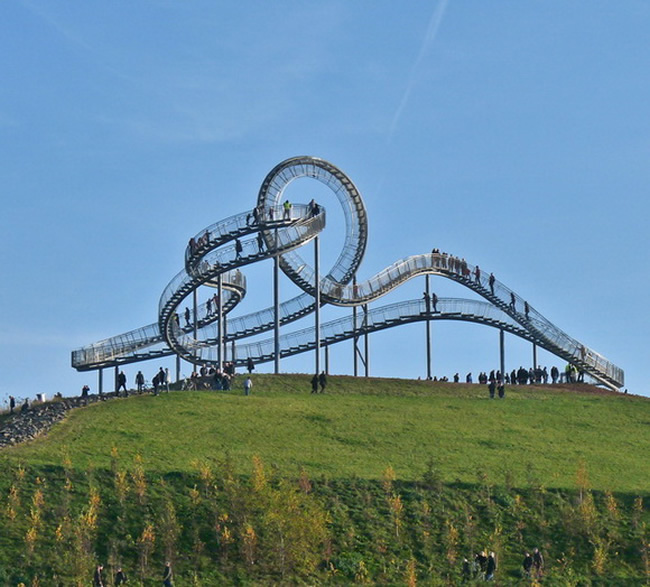
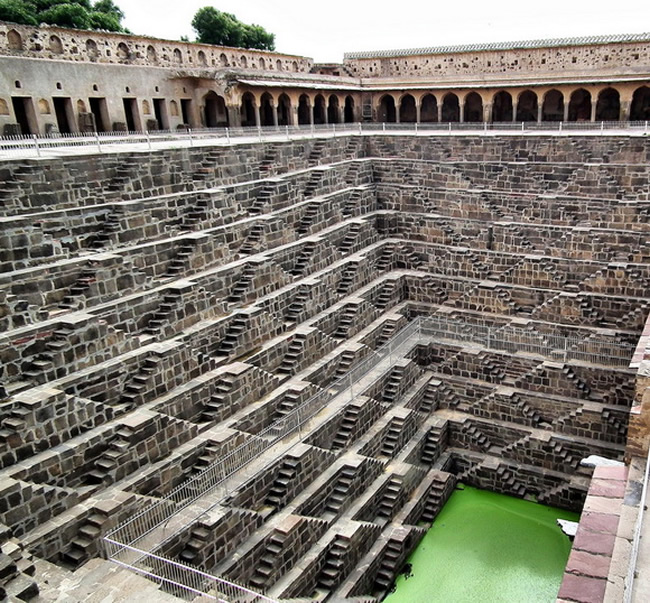
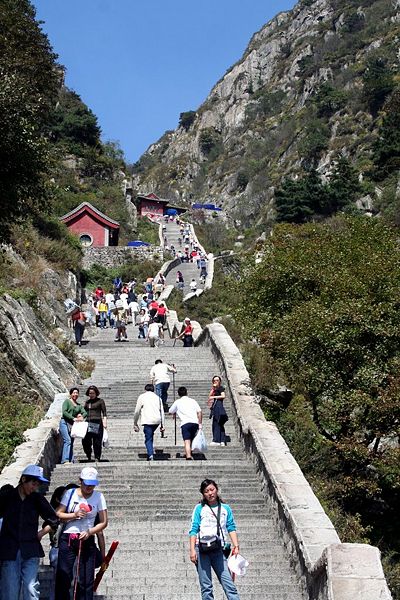
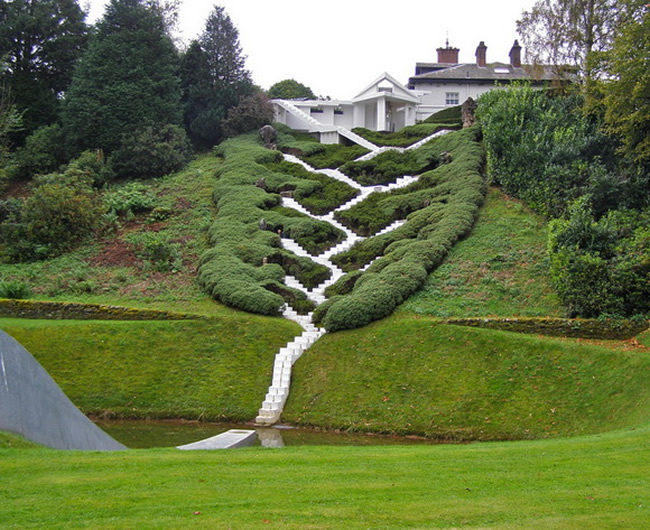
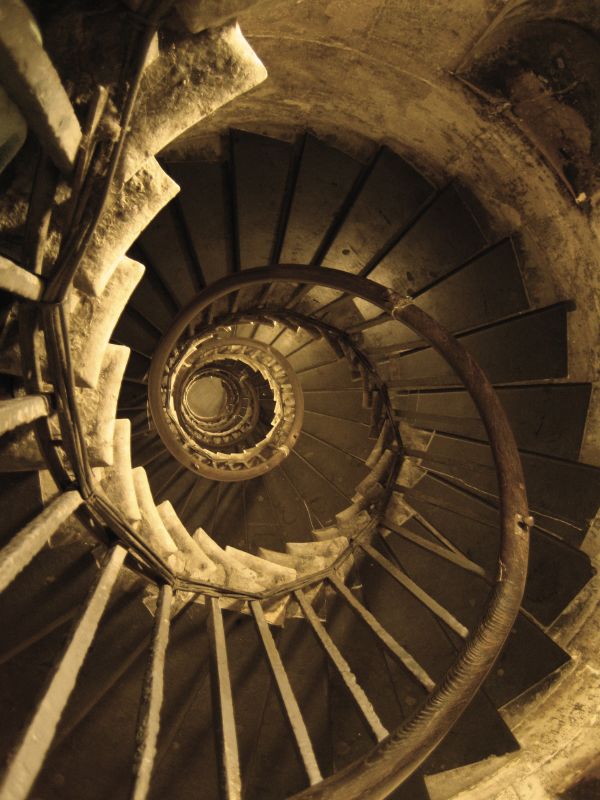
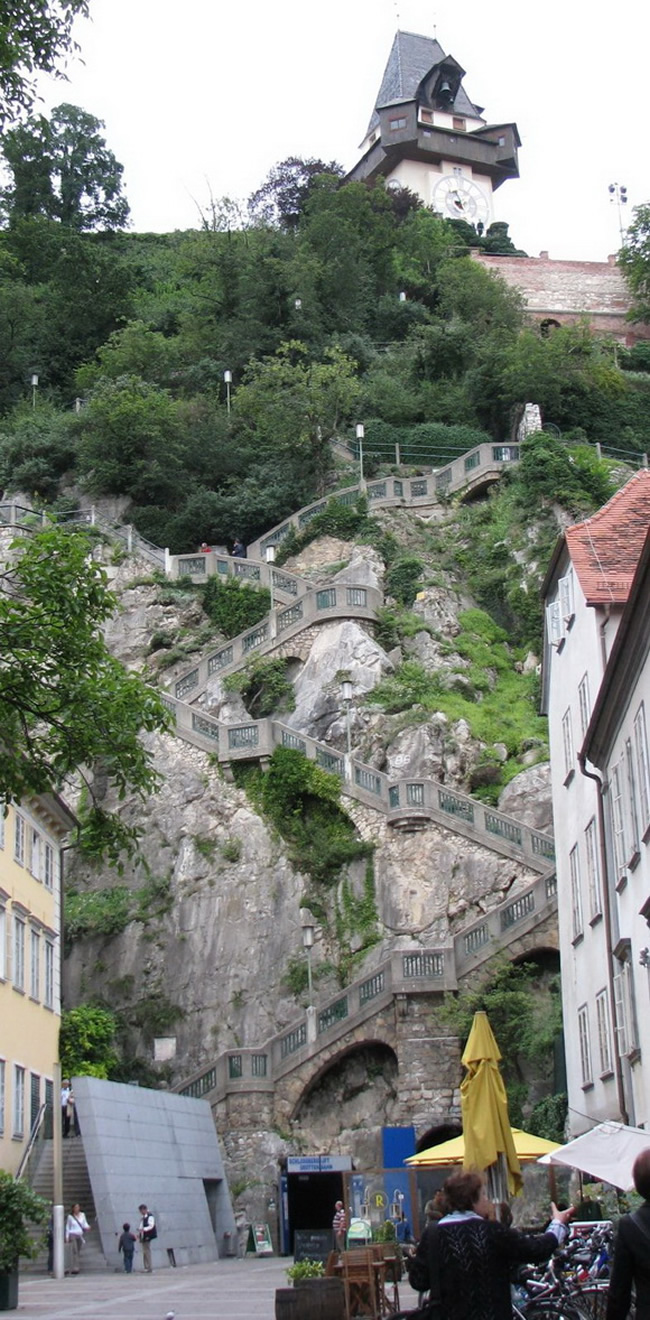
![Haiku Stairs, Hawaii, USA link The Haʻikū Stairs, also known as the Stairway to Heaven or Haʻikū Ladder, is a steep hiking trail on the island of Oʻahu. link The trail began as a wooden ladder spiked to the cliff on the south side of the Haʻikū Valley. It was installed in 1942 to enable antenna cables to be strung from one side of the cliffs above Haʻikū Valley to the other. link A building to provide a continuous communication link between Wahiawā and Haʻikū Valley Naval Radio Station was constructed at the peak of Puʻukeahiakahoe, elevation about 2,800 feet (850 m). link In 2003, the stairs were repaired, costing the city $875,000. As of early 2012, land usage rights issues have not been resolved. The City and County of Honolulu has stated that there is currently no plan to open the stairs for public use, citing liability concerns. [link, map]](http://www.anorak.co.uk/wp-content/uploads/2013/07/20110703-DSC_3869.jpg)
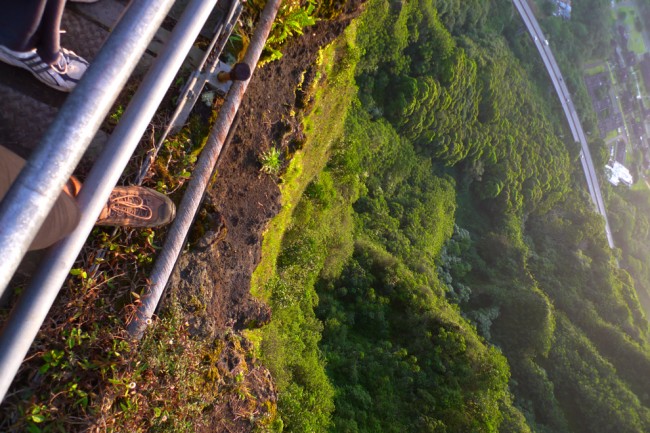


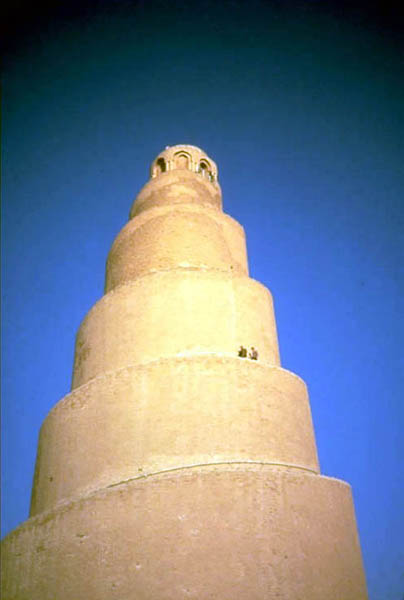
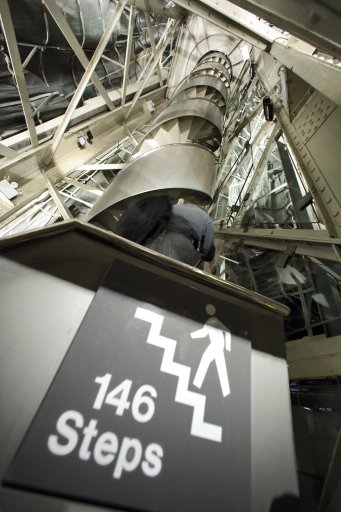
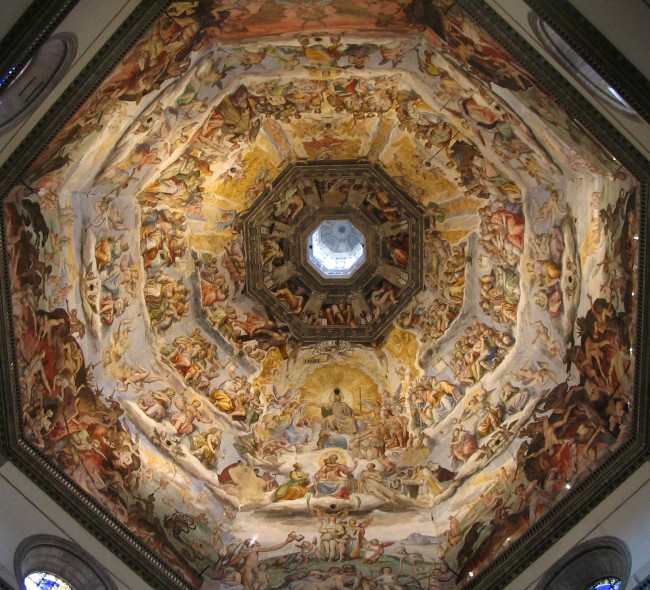
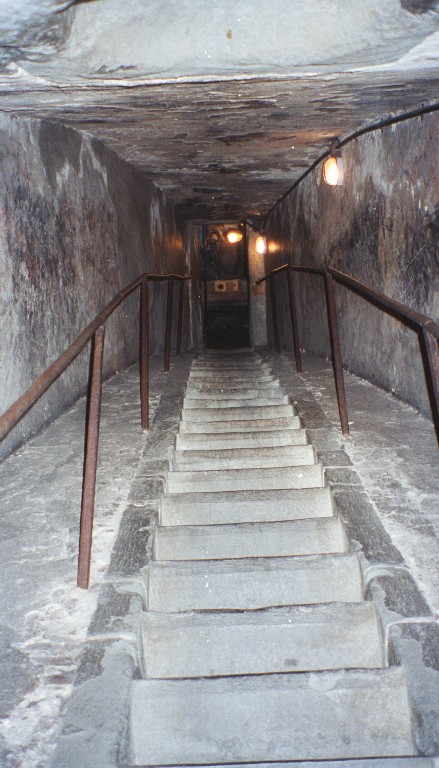

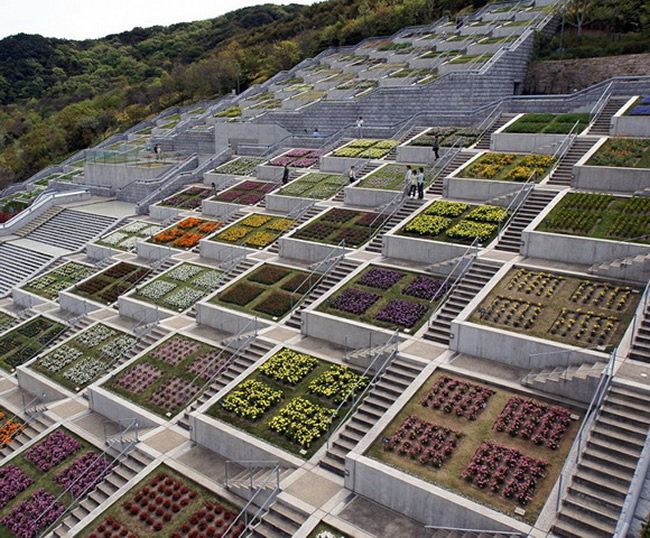

![This famous Canyon Staircase is located next to the waterfall Pailon del Diablo in Ecuador. The Paílón del Diablo is a fairly large waterfall (located on the Pastaza River) just 30 minutes away from the town of Baños in Ecuador. It is considered to be one of the most popular attractions in the area. While visiting Ecuador one should not miss this wonderful twisting stairs/steps. [link, map]](http://www.anorak.co.uk/wp-content/uploads/2013/07/6905382133_3070840537_b.jpg)
![arly 17th century Fort de Roovere is surrounded by a moat and was originally built without a bridge. Yet, as part of a recent restoration program, it required the addition of an access bridge. link Out of respect for the fort’s original island status, Netherlands-based RO&AD Architecten constructed the Moses Bridge Stairs, a discreet “sunken” bridge that sits flush with the line of the soil and the water. The result is an almost invisible bridge that partially immerses pedestrians into the moat. link Originally, an inundation zone to the north provided an area that could be flooded with water deep enough to make enemy advance on foot precarious, yet shallow enough to rule out the effective use of boats. link Today, two dams sit at either end of the mote, ensuring that when the water level rises, it spills over the dams and not into the bridge. [link, map]](http://www.anorak.co.uk/wp-content/uploads/2013/07/6829022756_d01538b4aa_b.jpg)
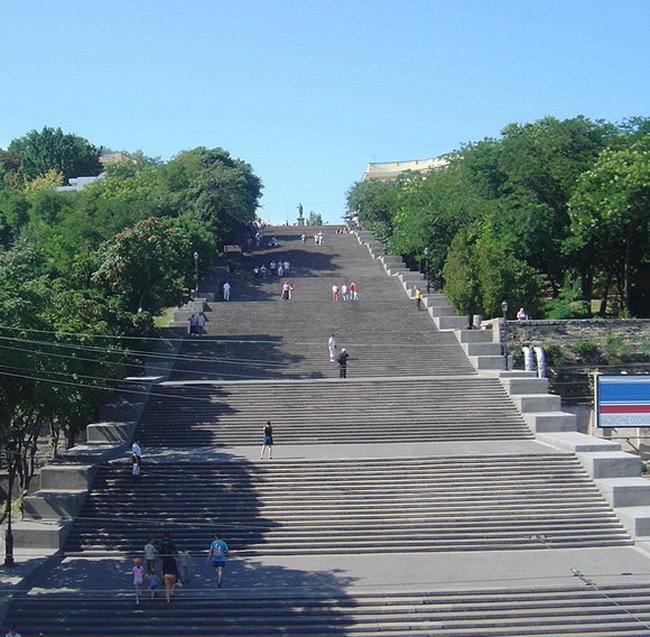
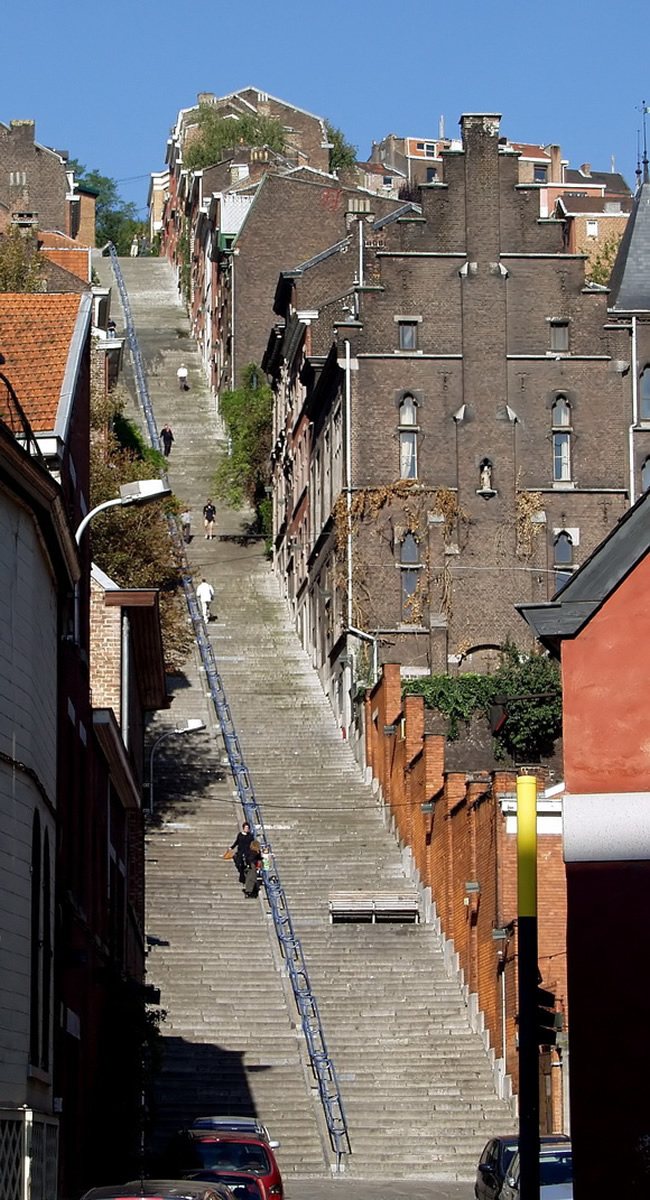

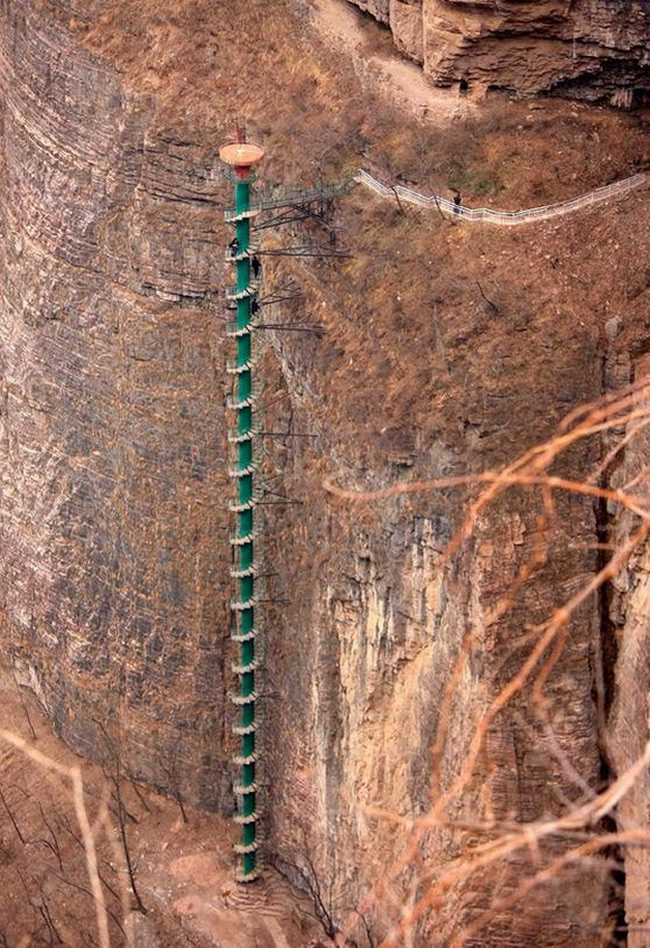
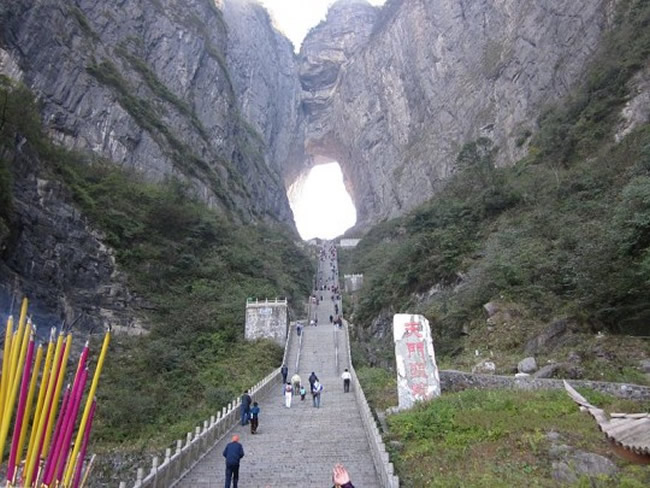

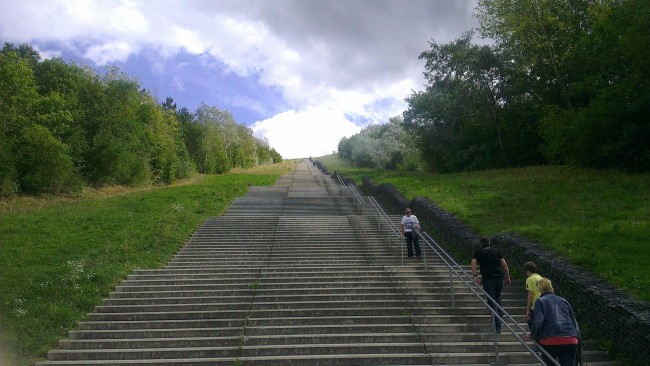


![Santorini Stairway, Greece link In 1715, the island inhabitants built a rough stairway into the side of the sheer mountain so they could hike to the summit. Before long, donkeys were enlisted to help carry cargo and passengers to and from the ships and town. In 1930, the stairway was improved and more donkeys were added to aid in the assent and decent. Finally, in 1979, a cable car was installed to automate the process - but the most fun ride is still by donkey. link The zigzag stairway from sea to city is paved in stone, and because of the many switchbacks, the distance from one end to the other is 1300 meters or 4,265 feet. There are 657 four-inch (10 cm) tall steps on the walkway, and this natural stair-master provides a very good workout on a sunny day. [link, map]](http://www.anorak.co.uk/wp-content/uploads/2013/07/wpid-enhanced-buzz-24870-1320160450-18.jpg)






